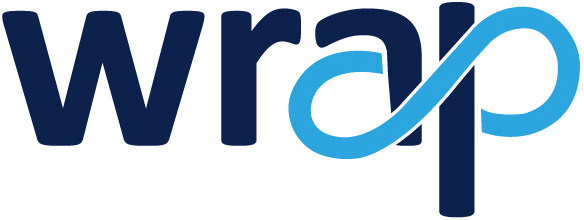Income
| £ Million | 2017/18 | 2016/17 |
| Central government | 10.6 | 15.6 |
| Devolved administrations | 4.3 | 6.7 |
| EU | 1.0 | 0.8 |
| Other income | 4.4 | 3.8 |
| Trading and investment | 0.2 | 0.3 |
| Total income | 20.5 | 27.2 |
WRAP’s income for the financial year totaled £20.5M compared with £27.2M in 2016/17. Within this, a £7.1M decrease in government grants was partially offset by a £0.4M increase in income from other sources (primarily charitable donations).
Total grant funding from Defra decreased by £3.4M, of which £1.0M relates to net year-on-year timing impacts (including 2016/17 funding for work on recycling consistency in England in 2017/18) and the remainder to the £2.4M decline in the core grant signalled in last year’s annual report. Over three years the underlying core grant has decreased from £12.0M in 2016/17 to £9.6M in 2017/18, with 2018/19 now confirmed at £9.1M.
A further £1.5M of the decrease is due to the timing impact of a multi-year extension to the Rural Community Energy Fund received and recognised in 2016/17, against which expenditure continued to be incurred in 2017/18.
Grant funding from Welsh Government remained stable year-on-year at £3.4M. WRAP’s future funding from Welsh Government is under review with a decision anticipated in the coming months. In the interim, the previous grant has been extended to cover the first six months of the new financial year, ensuring that our work on behalf of Welsh Government can continue without interruption. Our work on the Collaborative Change Programme (which was procured under a service contract rather than grant-funded) continued in 2017/18 with income increasing from £1.8M to £2.2M. The current Collaborative Change Programme contract runs until the end of March 2019.
In Northern Ireland, WRAP’s work administering capital grants under the Rethink Waste programme in 2016/17 did not recur in 2017/18, resulting in a £2.4M decrease in year-on-year income (offset by a corresponding reduction in the cost of grants awarded). Our core grant from DAERA grew from £0.5M to £0.6M.
We saw a modest increase in business funding from £0.7M to £0.8M, with signatory contributions towards the costs of our voluntary agreements continuing to outstrip other sources of business income. Charitable donations grew from £0.5M to £1.1M, largely thanks to a £0.7M civil sanctions donation. We are grateful to all of our generous donors.
Expenditure
| £ Million | 2017/18 | 2016/17 |
| Sustainable production and consumption | 8.1 | 8.7 |
| Waste and resource management | 9.9 | 10.7 |
| Trading and fundraising | 0.0 | 0.1 |
| Support costs | 2.2 | 2.9 |
| Governance | 0.2 | 0.2 |
| Total expenditure | 20.4 | 22.6 |
Overall, the increase in business and donations income has been insufficient to offset the decline in government grant funding, prompting a significant cost reduction initiative in the second half of the financial year. Where possible we have made savings in non-staff overheads or by not replacing colleagues who left voluntarily, but 26 positions were made redundant during the year with associated redundancy costs of £0.4M.
Overall expenditure decreased by £2.2M year-on-year. Excluding redundancy and other restructuring expenses, staff costs remained essentially flat in real terms. The cost benefit from headcount reductions (expected saving £1.5M) will not manifest until 2018/19.
Grants awarded decreased by £1.6M, consisting of a £2.4M decrease in Northern Ireland as noted above partially offset by increases elsewhere. Project costs decreased by £0.7M and non-staff overheads by £0.5M.
Grants policy
Net movement in funds
There was a net increase in funds during the year of £0.2M, consisting of a £1.2M increase in unrestricted funds (including the £0.7M civil sanctions donation, designated by the Trustees to fund specific projects in recycling and food waste reduction) and a £1.0M decrease in restricted funds from the drawdown of amounts received in previous periods.
In 2016/17 the Trustees designated £1.0M of unrestricted reserves to fund new work in sustainable eating, international partnerships and circular business models. The initial work has been successful, and expenditure against this fund was lower than planned (total £0.3M) thanks to operating efficiencies and the co-funding of certain costs. The Trustees have increased the designated funding for this work to £2.0M and ring-fenced additional headcount and resources as part of the recent restructure.
The Accelerating Growth Fund reserves in AGF of £6.4M are designated to its investment activities.
Consolidated balance sheet
At 31 March 2018 net current assets were £36.4M (2017: £40.5M) including short term investments of £27.5M (2017: £30.2M). The majority of these investments, £21.7M, relate to WRAP’s subsidiary companies the Accelerating Growth Fund Limited and eQuip RVG Ltd.
The AGF provides financial support and investment to organisations, principally SMEs, who are investing in or changing to circular business models. AGF is a company limited by shares and is not a charity. Provisions have been made against the loans receivable, and where residual funds may be repayable to the provider of funding when the objectives of the programmes have been achieved.
During the financial year, £4.0M of AGF’s reserves was invested in a combination of listed equities, cash products and other investments. The objective is to generate sufficient returns in the medium term to preserve the real-terms value of the investment and provide additional funding to drive impact in future.
The investment is managed by Brewin Dolphin and excludes direct investment in selected sectors where the Trustees believe there is potential conflict with WRAP’s charitable objects or environmental and wider social reputation among key stakeholders (tobacco, arms, gambling, tar sands, thermal coal and companies accused of illegal logging who have not publically and viably rebutted allegations). The expected financial impact of these exclusions is immaterial.
We recognised a modest (£57K) unrealised loss from marking the investment to fair value at the year end. This was significantly less than the decline in the market as a whole over the same period, so the directors of AGF are satisfied with the performance of the investments to-date, noting that the investment strategy is focused on medium-term returns.
WRAP’s other subsidiary eQuip RVG Ltd operated a residual value guarantee scheme which closed for new business in 2015. Over recent months we received confirmation that the company would not be required to make payments under the remaining guarantees, and the provisions for the associated exposure have therefore been released. Although eQuip remains solvent, its operations have now come to a close and so the directors have not prepared its accounts on a going concern basis. This has no impact on the financial statements or on the going concern status of the group.
Reserves policy and going concern
Reserves are required to cover working capital when income is received after the expenditure it is to fund has taken place, and to cover core operating costs for an interim period when new sources of funding are being developed. The unrestricted general funds decreased from £5.5M to £5.1M during the year and are in line with the three to six months of staff and support costs in the charity that the Trustees consider it prudent to hold as unrestricted reserves.
The Trustees have reviewed the circumstances of the charity and the group and consider that adequate resources continue to be available to fund activities for the foreseeable future. The Trustees are therefore of the view that the WRAP group is a going concern.
WRAP’s audited Annual Report and Consolidated Accounts are available from Companies House.

